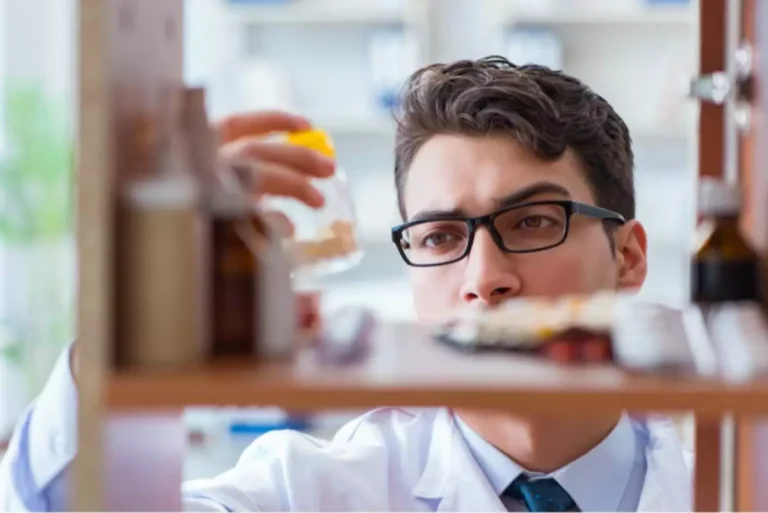
Journaling provides a safe outlet for self-reflection and emotional processing. Provide journal prompts to help members explore their thoughts and feelings, enhancing their self-awareness and offering a therapeutic space for introspection. Identifying and celebrating personal strengths can boost self-esteem and resilience.
- You, nor your loved one, are under any obligation to commit to a Treatment X treatment program when calling the helpline.
- A facilitator leads the group through a calming meditation, prompting them to imagine a place of peace or success in their recovery.
- For instance, they can help put clients at ease, express themselves, bring them closer, or provide educational information.
Developing Healthy Coping Mechanisms

Our team of licensed medical professionals research, edit and review the content before publishing. However, this information is not intended to be a substitute for professional medical advice, diagnosis, or treatment. For medical advice please consult your physicians or ChoicePoint’s qualified staff. CBT activities are solution-focused exercises and techniques that aim to improve mental health and substance abuse treatment outcomes in a fun and engaging way. When recovering from drug Alcoholics Anonymous addiction (also called substance use disorder), many people feel alone. That’s why most addiction treatment centers offer support groups and group therapy.
- Through structured, thoughtful activities, members gain the confidence and tools needed to overcome challenges and celebrate victories, creating a foundation for a fulfilling life in recovery.
- Music therapy utilizes this power to support individuals in substance abuse recovery.
- Yoga and movement therapy can reduce stress and improve physical and mental health.
- It’s about equipping individuals with the tools, confidence, and support network they need to navigate the challenges of recovery long after they leave the group room.
Role-Playing Exercises: Navigating Real-Life Scenarios
The group therapist is as active participant of the group and helps its members to understand their individual problems as well as interpersonal problems. Group discussion is focused on the current problems in relation to oneself and others. Role-playing scenarios allow individuals to practice and refine their coping strategies in a safe and supportive environment. By taking on different roles and exploring various situations, participants can develop effective problem-solving skills, learn assertiveness techniques, and build resilience. Role-playing is an excellent experiential exercise for group therapy that allows participants to act out real-life situations they may encounter in recovery. By simulating difficult conversations or potential relapse triggers, individuals can practice new responses and coping strategies in a supportive environment.

For the therapist
- Interactive group therapy games and exercises can be highly engaging and effective in promoting camaraderie, teamwork, and skill-building among participants.
- Activities in a group setting keep clients engaged and help them build bonds with peers.
- The program here at Two Dreams focuses on the improvement of one’s life through the achievement of mental peace, physical well-being, and personal productivity.
- This list of 50 group activities is designed to empower individuals on their journey by building self-awareness, enhancing coping strategies, and fostering a sense of community.
CBT exercises in a group setting can be invaluable in relapse prevention. Most addiction treatment programs use this form of evidence-based behavioral health therapy. These creative outlets can also serve as healthy coping fun group activities for substance abuse treatment mechanisms to practice outside of the group setting, helping people manage stress and creatively process their feelings.
Alpha Recovery: Partnering in the Journey of Transformation

By speaking their feelings aloud, participants can release emotions that may be holding them back in their recovery. A variety of therapeutic factors have been described in group therapy processes. The most favourable factor perceived by persons with SUD in group intervention is catharsis, followed by group cohesiveness and interpersonal learning.
- This activity helps members recognize and label their emotions, providing a foundation for healthy coping strategies.
- She has experience working with individuals living with a variety of mental health concerns including depression, anxiety, bipolar disorder, borderline personality disorder, and trauma.
- Addiction isolates you from those around you, such as friends and family, and you get used to mostly being on your own.
APPENDIX 2: SOCIOGRAM AND GROUP THERAPY RECORD

Engaging in healthy, active pursuits provides an effective way to manage stress, one of the most common relapse triggers. https://ecosoberhouse.com/ Participating in group physical fitness and outdoor adventures can play a significant role in relapse prevention. Art and other creative expression group activities provide people in recovery with an outlet for self-expression and emotional release. In settings like Alcoholics Anonymous and other self-help support groups, participants find social support and a safe space to openly discuss their challenges.
Respectful communication helps create an atmosphere of mutual understanding and empathy, allowing individuals to feel heard and validated. It also promotes a sense of equality within the group, where everyone’s voice is valued and respected. Team-building exercises and trust-building games foster a sense of belonging and mutual support among people in recovery. These activities teach people in recovery to recognize and reframe negative thought patterns, enabling them to develop healthier coping mechanisms. We believe that financial barriers should not prevent anyone from accessing high-quality addiction treatment.
Practice Forms
Through the use of colors, shapes, and textures, individuals can communicate their experiences and struggles in a non-verbal manner. By combining individual and group therapy, individuals receive a comprehensive and holistic approach to their recovery. The individual therapy sessions allow for deep introspection and personal growth, while the group therapy sessions provide a supportive community and valuable insights from peers.
Expressive arts therapy is a dynamic avenue for self-expression and emotional release. Through activities like painting, drawing, sculpting, or even journaling, participants channel their emotions and thoughts in a creative manner. This approach is particularly beneficial for those who may struggle with verbal communication or find traditional talk therapy challenging.
Positive Affirmations And Compassion Box
These 50 activities build practical skills and encourage self-discovery, resilience, and meaningful connection with others. Through structured, thoughtful activities, members gain the confidence and tools needed to overcome challenges and celebrate victories, creating a foundation for a fulfilling life in recovery. Moreover, art therapy fosters personal growth by promoting self-acceptance and self-discovery.
